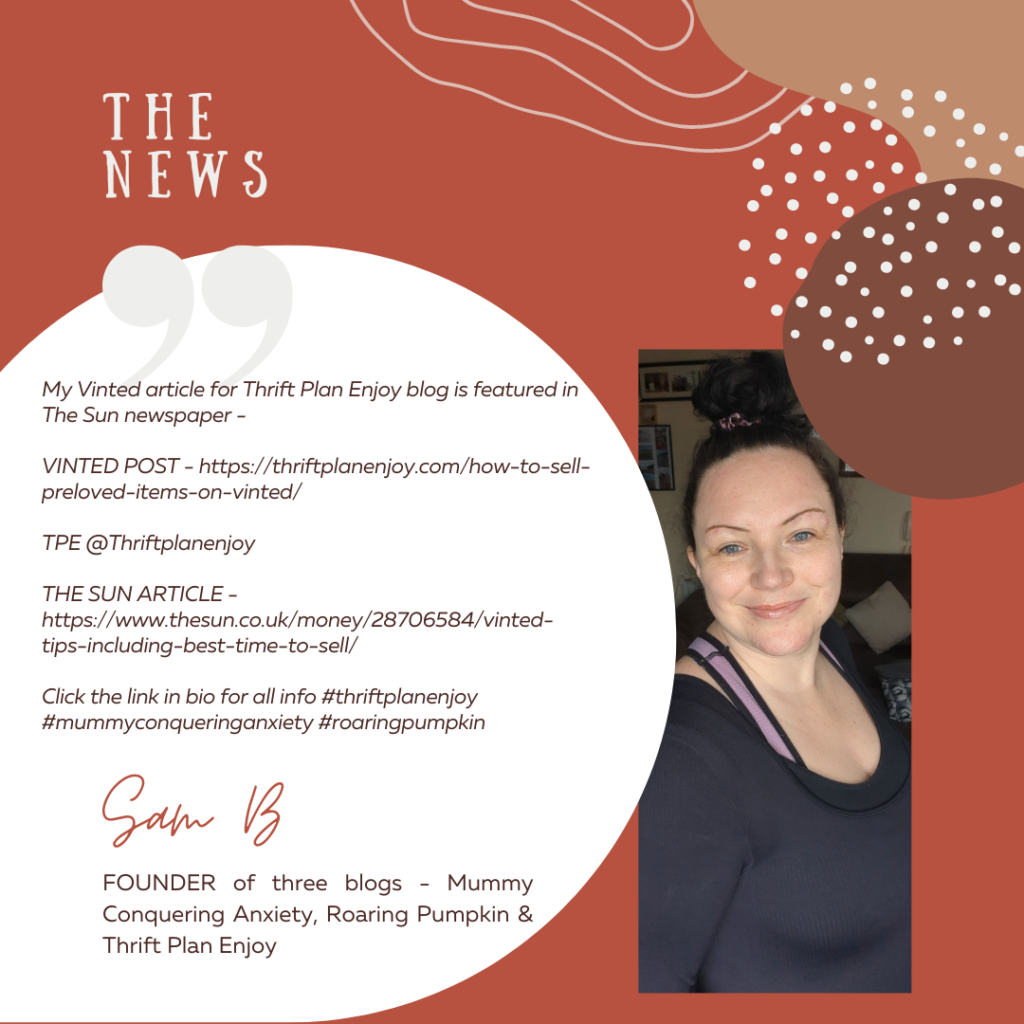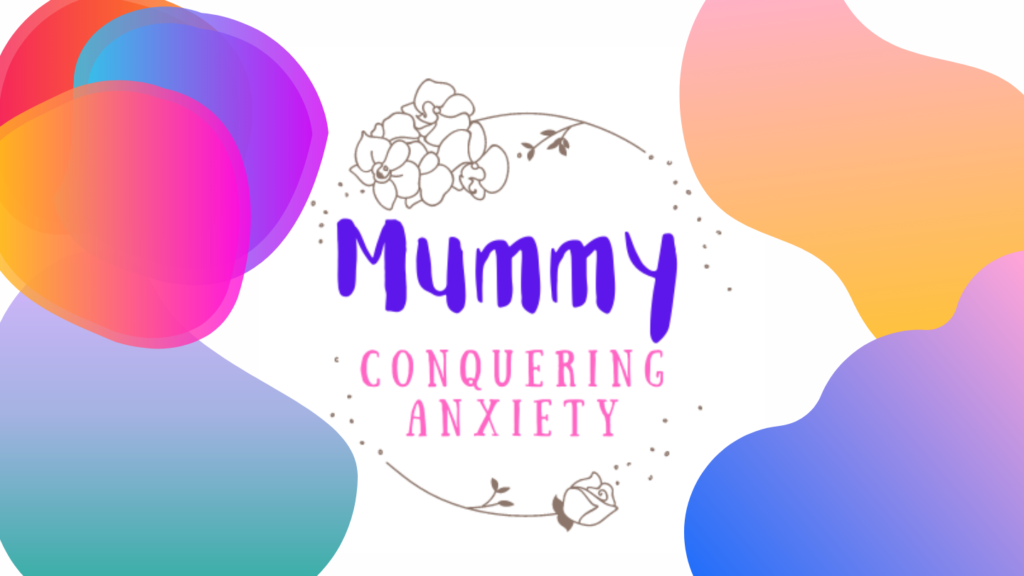Why I’m exploring tools to help prevent seasonal affective disorder
It’s a proven fact our mental health can naturally suffer during the colder months of the year. There is a condition called seasonal affective disorder (SAD). You can find an explanation on Mind.org.
The website lists the following symptoms:
- lack of energy
- finding it hard to concentrate
- not wanting to see people
- sleep problems, such as sleeping more or less than usual, difficulty waking up, or difficulty falling or staying asleep
- feeling sad, low, tearful, guilty or hopeless
- changes in your appetite, for example feeling more hungry or wanting more snacks
- being more prone to physical health problems, such as colds, infections or other illnesses
- losing interest in sex or physical contact
- suicidal feelings
- other symptoms of depression
Quick note: Mummy Conquering Anxiety is a participant in the Amazon Services LLC Associates Program. Some of the links contained on this page are affiliate links and if you go through them to make a purchase, I will earn a commission. I only recommend products I use myself and think would be useful for you.

Due to lack of sunlight, or the ability to do as much exercise, our mental health can be negatively impacted. With the darker nights setting in, it isn’t as easy to go for an evening walk. We take it for granted in summer. We can come home from work, eat, have some downtime and also still then go outside. We don’t have this luxury in the UK from September onwards.
Preventing seasonal affective disorder isn’t easy. If like me, you already struggle with your mental health, it can be difficult to manage physical changes which may add to this burden. Some of the tools I use to manage my anxiety, like exercise and sitting on a bench in the park, may not be as readily available from now on. Sitting on a park bench is the last thing I want to do when it’s cold and raining sideways in the UK. It, therefore, becomes harder to stick to the routine I’ve previously built to keep my mind from getting carried away with itself.
The reality of cold months in the UK
I’ve personally suffered from down periods during the winter months in the past. Given the impact of the pandemic, I looked into buying a SAD lamp towards the back end of 2020. I know now, my mental health was already suffering due to work pressures and the impact the pandemic had on everyone’s mental health.
This year I need to be conscious I am only just returning to work around the time the darker nights start to set in and therefore I need to up my game in terms of self-care and preventative measures. It’s a catch 22 situation for me because I am looking forward to the autumn season, as explained in this post, but I am aware it could also negatively impact my mental health.
What does the research say?
When the autumn months arrive, we tend to want to stay indoors due to the cold weather. When you look outside and it’s cold and raining, all you want to do is get wrapped up in a blanket on the sofa. You’re happy when someone suggests coming to your house for a cup of tea rather than going out somewhere.
I’m a homebody and love being at home, but too much indoor activity isn’t good for my mental health either. Therefore, it’s a fine line and I may have to push myself to take a walk in the rain this year. I need to focus on the mental health benefits this could bring, rather than the physical comfort of being at home.
Here’s the research on the factors which cause poor mental health…
The NHS website confirms the following:
“The main theory is that a lack of sunlight might stop a part of the brain called the hypothalamus working properly, which may affect the:
- production of melatonin – melatonin is a hormone that makes you feel sleepy; in people with SAD, the body may produce it in higher than normal levels
- production of serotonin – serotonin is a hormone that affects your mood, appetite and sleep; a lack of sunlight may lead to lower serotonin levels, which is linked to feelings of depression
- body’s internal clock (circadian rhythm) – your body uses sunlight to time various important functions, such as when you wake up, so lower light levels during the winter may disrupt your body clock and lead to symptoms of SAD”
There is also some research relating to lack of Vitamin D, which we naturally produce when exposed to sunlight:
“Deficits in vitamin D may exacerbate these problems because vitamin D is believed to promote serotonin activity. In addition to vitamin D consumed with diet, the body produces vitamin D when exposed to sunlight on the skin. With less daylight in the winter, people with SAD may have lower vitamin D levels, which may further hinder serotonin activity.”
This Insider article explains more on the impact of lack of vitamin D during the winter months.

Tools I will be using this autumn/winter season
SAD lamp
Given my poor mental health across the majority of 2021, I think it’s time to invest in a SAD lamp and have it on my desk whilst I work. I need to act quickly and have measures in place to help if I’m unable to go outside for natural fresh air and sunlight.
Here are some I’ve found and I’m thinking of purchasing one:
If anyone has recommendations for these lamps, let me know in the comments below.
Vitamin D supplements
I will be taking a separate vitamin D supplement, starting in the next few weeks.
Calcium
The research also says taking a calcium supplement can help the vitamin D absorb in the body.
Less alcohol
One of the articles above mentions liver and kidney function impacting vitamin D absorption in the body. In order to feel well, I will aim to drink less alcohol and stay hydrated.
I know this comes at a time when people tend to drink more alcohol in the lead-up to the festive season. However, I need to be aware of the overall benefits of not getting sucked into this. Here are some amazing alcohol alternatives. I bought a few of these whilst I was pregnant. You still feel like you’re joining in, but don’t have the rubbish effects of alcohol on your body. I particularly suffer from IBS attacks when I drink a lot of alcohol and I become dehydrated easily.
Eat well
It’s tempting during the winter months to eat carbs or junk food. I think sometimes we subconsciously do this to feed an emotional void rather than physically feeding our bodies.
I will continue meal planning and shopping wisely with a view to no food waste, ensuring I eat healthily (you will hear more on my meal planning in future blog posts).
Final thoughts
If you’re impacted by any of the symptoms listed above, you can find details of mental health charities here.
Let me know your story if you have been impacted in the past and the measures you’re taking to get ready for the upcoming colder season.
I would love to hear from you.






Thank you for sharing this post. The darker nights can be disheartening, as it feels like half of my day has disappeared. I also look forward to the Autumn season, but I have to be aware that it can negatively impact my mental health. Therefore I have to up my self-care routine.
Thank you for sharing these tools! I have only recently heard of a SAD lamp and will have to suggest one to my partner, as he finds the winter months tougher than me. Drinking less alcohol is a good suggestion, as is staying hydrated. Mocktails are always a good alternative to alcohol and tend to be cheaper and just as tasty. 😊
Resisting junk food during the winter months will be hard as it is so easy to curl up on the sofa with a stack of chocolates. This is 100% an area I am continuously working on.
I have a flexible work schedule, so I will be trying to go for a walk in the morning before work to enjoy any sun we might have. 😊
Thank you for sharing. 😊
Thanks for your comment.
I am about to purchase my SAD lamp as I am already feeling the impact of the season change and darker nights.
I agree the other ones will be difficult to achieve but this year I also need to be extra cautious, because I haven’t had a great mental health year.
This is a fantastic post – I have experienced SAD off and on again throughout the years in the winter months as here in Canada there are some days where we’re lucky to even get 2-3 hours of sunlight in the winter months. I loved using a SAD light, as well as eating berries/fruits really helped me feel well. Thanks for sharing this important information!
Wow, 2-3 hours isn’t enough. It’s starting to get very gloomy here during the day.
I will start buying berries and also getting my lamp this week.
I experienced SAD when I moved to New York. A proper diet and laughter helped a lot.
I am sorry to hear this. Thank you for sharing what helped you. I am trying to meal plan weekly but may do a future plan with lots of slow cooker goodness. Laughter really is the best medicine.
I have a sunshine lamp, and I use it in the mornings when the winter months strike, it helps me out a little. I also get my blood tested around December time to make sure I’m not low in Vit D and iron. Anything that can help my mental health. Great post, full of good info.
Do you know of any research linking SAD to summer months? I’ve encountered several cases of seasonal depression linked to hotter temps and longer days, but it’s not really being studied as far as I can tell.
I hadn’t heard of this before, but it makes sense that hot weather could impact you negatively. I am going to have a look into it now.
If it is causing an impact, I think it needs to be studied.
Great post, really useful tips. I definitely need to take vitamins, I’d also add getting out for walks, I sometimes force myself but always feel better after it.
I am not always great at taking vitamins daily, but I must remember to.
In terms of walks, I am exactly the same. It takes a lot for me to get out there, but once I do, I feel amazing 🙂
This post is sooo important as the winter hits! I don’t think anyone truly gets how the seasons can affect your mood and mental health. Thanks for sharing.
I hope the post raises awareness. I’ve suffered each winter and I have to be extra careful this year, because of my mental breakdown. I am NOT going back to that place again if I can help it.
As someone from caribbean, I dread the winter months because of the cold and snow days. I think everyone goes through some degree of SAD. You gave some great tips on how to avoid the winter blues
Thank you for your comment. I agree, I think everyone is impacted in some way.
hello! This is such a good post and very relevant! I literally just started taking vitamins because of the cold! I totally agree with this post, thanks for sharing. Alicia
Hey. Thank you. I try and take vitamins, but especially at this time of year.
We need to look after ourselves.